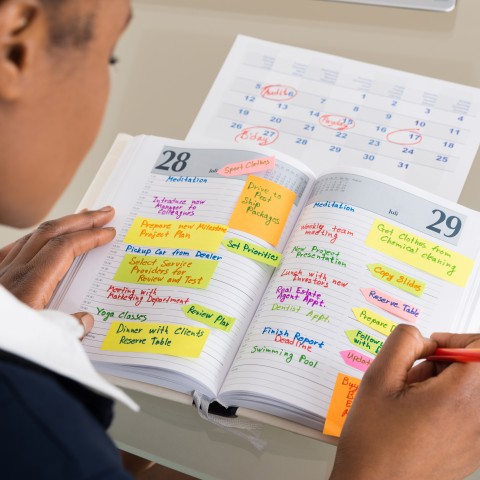
Are you having trouble jumping the gap from beginner Cantonese to an intermediate level? It can feel daunting to leave the comfort of simple sentence structures and common words, and even more so to start treading the uncharted grounds of complex ideas and subtle feelings. But once you’ve made the initial move toward learning intermediate Cantonese, you’ll find a lot of satisfaction in honing your skills on the more challenging aspects of the language.
- ➜ In case you’re struggling to reach the intermediate level, see our lesson 5 Tips to Reach Intermediate Level!
In this article, you’ll find 30+ intermediate Cantonese phrases covering different aspects of life, from making recommendations to putting your best foot forward in business or social settings.
What are you waiting for? Let’s dive in!

Let’s get going!
 Table of Contents
Table of Contents
- Talking About Past Events
- Making and Changing Plans
- Explaining and Listing Reasons
- Recommendations and Complaints
- Reaction Phrases for Everyday Conversations
- Etiquette Phrases for Social and Business Settings
- How CantoneseClass101.com Can Help You Learn More Cantonese
1. Talking About Past Events
Cantonese is considered a tenseless language. In contrast to European languages like English or French, it has neither conjugation nor the concept of tense. We don’t modify verbs to express when an action took place; instead, we use additional words to serve this function when necessary. That said, we can usually tell from the context whether an event happened in the past, present, or future.
- ➜ Interested in learning more about Cantonese grammar and how we indicate tense in Cantonese? We recommend you read our Guide to Basic Cantonese Grammar!

I had fun last night!
Here are five intermediate phrases in Cantonese you can use when talking about past events:
1 – 你去咗邊呀?
Romanization: nei5 heoi3 zo2 bin1 aa3?
Meaning: Where did you go?
Literal translation: You went where?
2 – 你尋日做咩?
Romanization: nei5 cam4 jat6 zou6 me1?
Meaning: What did you do yesterday?
Literal translation: You yesterday do what?
3 – 佢哋頭先走咗。
Romanization: keoi5 dei6 tau4 sin1 zau2 zo2.
Meaning: They just left.
4 – 尋日我去公園。
Romanization: cam4 jat6 ngo5 heoi3 gung1 jyun2.
Meaning: Yesterday I went to the park.
Literal translation: Yesterday I went the park.
5 – 頭先同班兄弟踢波。
Romanization: tau4 sin1 tung4 baan1 hing1 dai6 tek3 bo1.
Meaning: I was playing soccer with my friends just now.
Literal translation: Just now with my friends playing soccer.
2. Making and Changing Plans
Now that you have a better grasp on talking about the past, let’s jump back to the future.
Usually, mentioning the date of an event is enough for the other person to understand you’re talking about the future. Sometimes, you don’t even need to mention the date—people will gather that it’s a future event from the context.

Here are six basic Cantonese phrases for making and changing plans:
1 – 我打畀你。
Romanization: ngo5 daa2 bei2 nei5.
Meaning: I’ll call you.
Literal translation: I call you.
2 – 我哋聽日幾點見?
Romanization: ngo5 dei6 ting1 jat6 gei2 dim2 gin3?
Meaning: What time shall we meet tomorrow?
Literal translation: We tomorrow when meet?
3 – 你鍾唔鍾意呢度?
Romanization: nei5 zung1 m4 zung1 ji3 ni1 dou6?
Meaning: What do you think of this place?
Literal translation: You like or not like this place?
4 – 不如我哋去第二度?
Romanization: bat1 jyu4 ngo5 dei6 heoi3 dai6 ji6 dou6?
Meaning: Shall we go somewhere else?
Literal translation: How about we go elsewhere?
5 – 我哋一齊去玩好嗎?
Romanization: ngo5 dei6 jat1 cai4 heoi3 waan2 hou2 maa3?
Meaning: Would you like to hang out with me?
Literal translation: We together play good?
6 – 你今個禮拜尾得唔得閒?
Romanization: nei5 gam1 go3 lai5 baai1 mei5 dak1 m4 dak1 haan4?
Meaning: Are you free this weekend?
Literal translation: You this weekend free or not free?
3. Explaining and Listing Reasons
Stating facts or describing things that you’ve done is a great start. But your conversations will get much more interesting once you’re able to explain the reasoning behind your actions and understand people’s motivations. This could be as simple as saying that you don’t want dessert because you’re full, or as complex as elaborating on your tastes in music or movies.
Describing your reasons is quite straightforward in Cantonese. You’ll just need to know a few key words and structures before you can talk about causes and consequences. These words are:
- 因為 (jan1 wai6) – because
- 唔怪得之 (m4 gwaai3 dak1 zi1) – no wonder
- 由於 (jau4 jyu1) – due to
Looking for more connecting words like these? Check out our complete guide to Cantonese conjunctions and connecting words!
Here are six intermediate Cantonese phrases for explaining and listing reasons:
1 – 我因為結婚要買樓。
Romanization: ngo5 jan1 wai6 git3 fan1 jiu3 maai5 lau2.
Meaning: I need to buy a flat because I am getting married.
Literal translation: I because marriage need buy flat.
2 – 你着咁少衫,唔怪得之會感冒。
Romanization: nei5 zoek3 gam3 siu2 saam1, m4 gwaai3 dak1 zi1 wui2 gam2 mou6.
Meaning: You’re wearing so little. No wonder you’ve got a cold.
Literal translation: You wear so little, no wonder you got cold.
3 – 我鍾意端午節,因為可以食糭。
Romanization: ngo5 zung1 ji3 dyun1 ng5 zit3, jan1 wai6 ho2 ji3 sik6 zung2.
Meaning: I like the Dragon Boat Festival because I can eat rice dumplings.
Literal translation: I like dragon boat festivals, because I can eat rice dumplings.
4 – 你亂咁食嘢,唔怪得之會肚痛啦。
Romanization: nei5 lyun2 gam3 sik6 je5, m4 gwaai3 dak1 zi1 wui2 tou5 tung3 laa3.
Meaning: You’re eating so irregularly. No wonder you’ve got a stomachache.
Literal translation: You random eat, no wonder you got stomachache.
5 – 由於特殊嘅原因,飛機將會馬上掉頭。
Romanization: jau4 jyu1 dak6 syu4 ge3 jyun4 jan1, fei1 gei1 zoeng1 wui5 maa5 soeng6 diu6 tau4.
Meaning: For exceptional reasons, the plane will fly back to the departure airport shortly.
Literal translation: Because of exceptional reasons, the plane will immediately turn around.
6 – 好多鹿都因為佢哋嘅鹿角而俾人獵殺。
Romanization: hou2 do1 luk2 dou1 jan1 wai6 keoi5 dei6 ge3 luk2 gok3 ji4 bei2 jan4 lip6 saat3.
Meaning: Many species of deer are hunted for their antlers.
Literal translation: Many deers because of their antlers then get hunted.
4. Recommendations and Complaints
Sharing our opinions and insights helps us create bonds and allows us to learn from each other’s experiences. Whether you want to make a complaint at a shop or ask for restaurant recommendations from your friends, you’ll find some of the most useful phrases below.
- ➜ We also have a list of complaint phrases available in case you need more!

Which one should I choose?
1 – Office好熱。
Romanization: office hou2 jit6.
Meaning: The office is hot.
Literal translation: Office very hot.
2 – 呢度有撻漬。
Romanization: ni1 dou6 jau5 daat3 zik1.
Meaning: There is a stain here.
Literal translation: Here have stain.
3 – 邊間餐廳好呀?
Romanization: bin1 gaan1 caan1 teng1 hou2 aa1?
Meaning: Which restaurant is good?
Literal translation: Which restaurant good?
4 – 電視有咩好睇?
Romanization: din6 si6 jau5 me1 hou2 tai2?
Meaning: What’s good on TV?
Literal translation: TV have what good watch?
5 – 呢度至好食係乜?
Romanization: ni1 dou6 zi3 hou2 sik6 hai6 mat1?
Meaning: What is the best food here?
Literal translation: Here best food what?
6 – 我啱啱收到啲貨,但係同我買嘅嘢唔同嘅。
Romanization: ngo5 aam1 aam1 sau1 dou2 di1 fo3, daan6 hai6 tung4 ngo5 maai5 ge3 je5 m4 tung4 ge2.
Meaning: I just had my shopping delivered, but this is not what I ordered.
Literal translation: I just received goods, but with my purchased goods not same.
5. Reaction Phrases for Everyday Conversations
Let’s change the tempo with some examples of conversational phrases. In this section, you’ll learn how to react to statements with different emotions. On your road to fluency, learning to express interesting and nuanced reactions (rather than just saying “yes” or “no”) is a great step forward that will add a lot of flavor to your conversations.
- ➜ Want to stay positive? Then visit our list of positive emotions in Cantonese!

What?
1 – 你錯喇!
Romanization: nei5 co3 laa3!
Meaning: You’re wrong!
Literal translation: You wrong!
2 – 係真㗎!
Romanization: hai6 zan1 gaa3!
Meaning: That’s true!
Literal translation: Is true!
3 – 我諗唔係。
Romanization: ngo5 lam2 m4 hai6.
Meaning: I don’t think so.
Literal translation: I think no.
4 – 今晚好開心。
Romanization: gam1 maan1 hou2 hoi1 sam1.
Meaning: That was a great evening.
Literal translation: Tonight very happy.
5 – 我都唔肯定。
Romanization: ngo5 dou1 m4 hang2 ding6.
Meaning: Well, I’m not sure.
Literal translation: I too not sure.
6 – 係呀,你講得啱。
Romanization: hai6 aa3, nei5 gong2 dak1 aam1.
Meaning: Yes, you’re right.
Literal translation: Yes, you speak right.
6. Etiquette Phrases for Social and Business Settings
Manners Maketh Man.
Courtesy is the lubricant that makes society run smoothly. It helps ease the friction between people of different backgrounds and acts as a framework for peaceful social interactions. Below, you’ll find a few intermediate Cantonese phrases that will help you be polite and courteous in a variety of situations.
- ➜ To learn Cantonese business phrases, make sure to read our dedicated article!

Make a good impression.
1 – 慢慢食。
Romanization: maan6 maan2 sik6.
Meaning: Courtesy phrase used at the beginning of a meal
Literal translation: Slow slow eat.
2 – 一路順風。
Romanization: jat1 lou6 seon6 fung1.
Meaning: Bon voyage.
Literal translation: All the way smooth.
3 – 旅途愉快。
Romanization: leoi5 tou4 jyu6 faai3.
Meaning: Happy journey.
Literal translation: Journey happy.
4 – 唔使拘謹。
Romanization: m4 sai2 keoi1 gan2.
Meaning: Please make yourself at home.
Literal translation: No need prudish.
5 – 我車你返屋企。
Romanization: ngo5 ce1 nei5 faan1 uk1 kei5.
Meaning: I will drive you home.
Literal translation: I drive you back home.
6 – 我期待聽日嘅來臨。
Romanization: ngo5 kei4 doi6 ting1 jat6 ge3 loi4 lam4.
Meaning: I look forward to tomorrow.
Literal translation: I look forward tomorrow coming.
7. How CantoneseClass101.com Can Help You Learn More Cantonese
We hope you enjoyed this article and learned some practical phrases that you’ll be able to start using right away. Let us know in the comments if we missed any essential Cantonese phrases for the intermediate level, or if there’s a situation we didn’t cover. We’d be glad to help!
Can’t wait to continue your Cantonese journey after mastering the intermediate phrases? We know that learning a new language can be tiresome or even lonely, but with the right tools, you can master Cantonese without all the struggling.
With CantoneseClass101.com, you can have your daily dose of Cantonese whenever and wherever you want, through mobile apps, desktop software, and our website. We offer entertaining, engaging, and effective lessons on various aspects of the Cantonese language and culture.
Until now, we’ve delivered more than 750,000,000 lessons to thousands of happy students from all around the globe. You can learn Cantonese with over 1060 audio and video lessons delivered by our knowledgeable and energetic hosts, detailed PDF lesson notes, an abundance of vocabulary learning tools, spaced repetition flashcards, and a lively community where you can discuss lessons with fellow learners. What are you waiting for? Download our lessons, enjoy our audio and video files, and start learning now!
And keep in mind that if you prefer a 1-on-1 learning approach and want to further accelerate your Cantonese learning, you can take advantage of our MyTeacher service.
Know that your hard work will pay off, and before you know it, you’ll be speaking Cantonese like a native!










